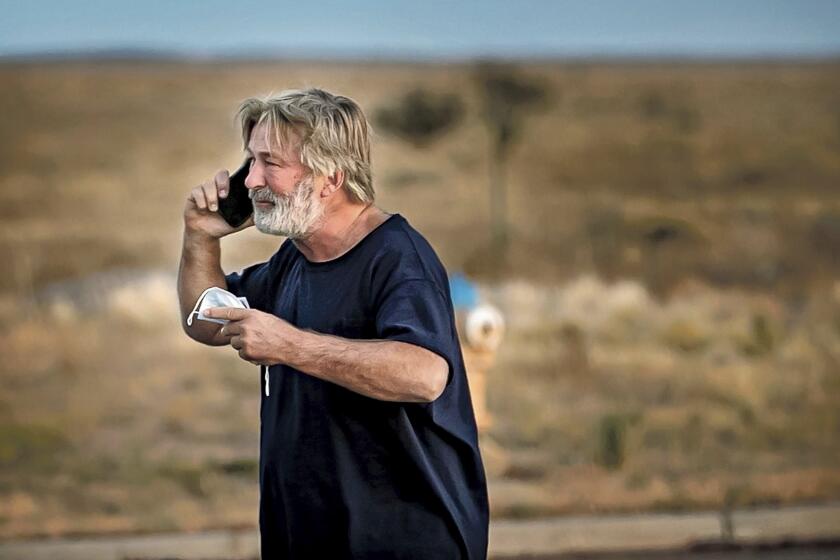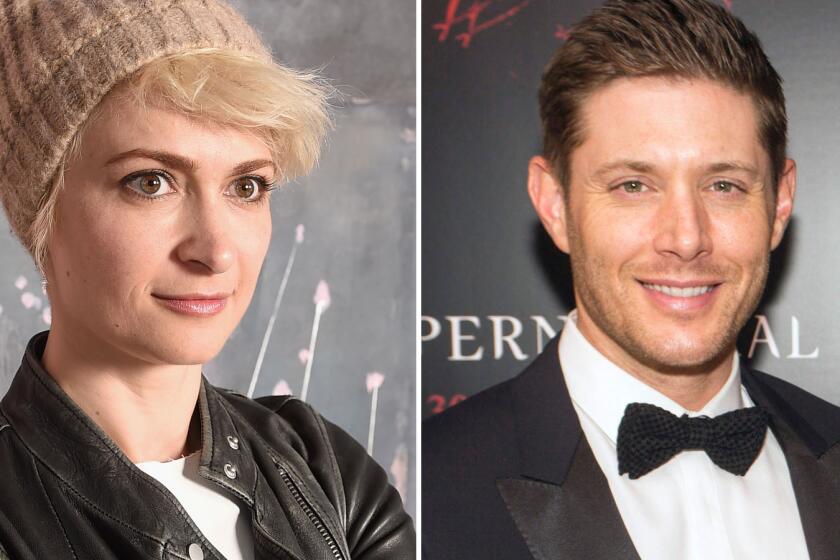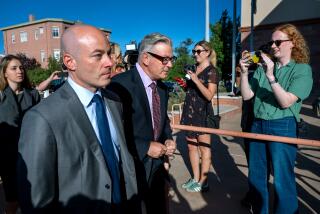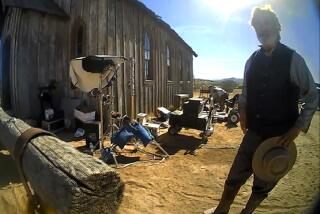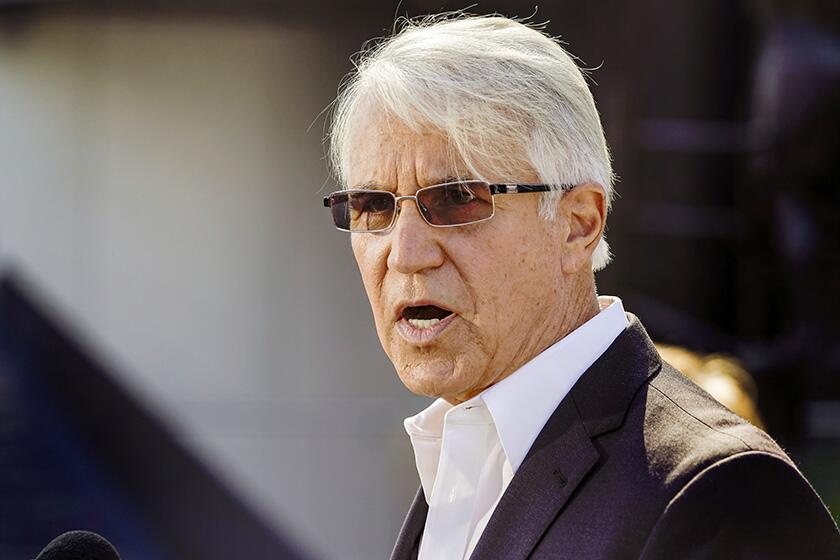Editorial: Does Hollywood need to use real guns to tell good stories? No, it doesn’t
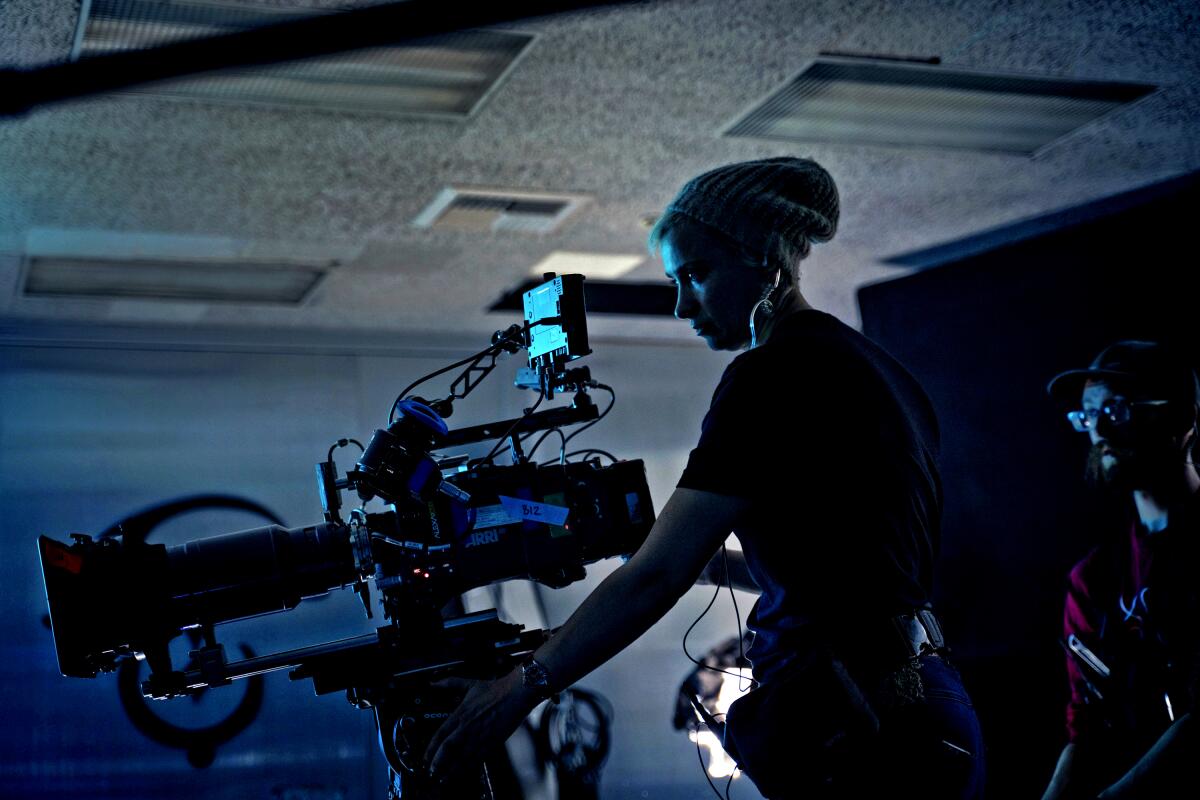
There are numerous industry guidelines in place to assure the safe use of real guns as props on the sets of TV and film shoots.
Firearms — even those modified not to accommodate real bullets — are checked and re-checked before they are handed off to actors who should then check the weapons for themselves. An armorer or someone with special training should always have custody of the guns and oversee their handling.
No real bullets should ever be used on a set. Blanks, which are shell casings loaded with gunpowder used to create the sound and look of gunfire, must be used carefully. Firing them at close range can cause injury or even death. And no actor should point a gun straight at a person — instead, he or she should cheat the angle.
But those guidelines only work if they are followed meticulously. And there is evidence that they weren’t on the set of the movie “Rust” where the cinematographer Halyna Hutchins was tragically killed last week when actor Alec Baldwin fired a prop gun that he and others on the set believed held no live ammunition. The movie’s director, Joel Souza, was also injured. It may have been a rare gun-related death on a TV or film shoot — the last known one was the actor Brandon Lee in 1993 on the set of the movie “The Crow” — but why take the risk at all?
Since guns pose such a profound danger and post-production special effects can create the look and sound of a gunshot, it’s time for Hollywood to voluntarily stop using real guns — no matter how modified they may be.
Before the revolver fired, Alec Baldwin was rehearsing how to point it toward the camera, says an affidavit laying out new details of the shooting.
A muzzle flash can be easily created in post-production, says Daniel Leonard, associate dean of Chapman University’s Dodge College of Film and Media Arts. Some in the entertainment business say the recoil the actor experiences from firing a real gun is difficult to replicate with a fake. Isn’t there enough technology to craft a nonfiring gun such that “if you pull the trigger it moves?” muses Leonard. “We’re in the land of make-believe.”
Some shows have already changed their policies in the wake of the shooting death on the “Rust” set. Alexi Hawley, the showrunner of the TV police drama “The Rookie” on ABC, told his crew last Friday in an email that the firing of real guns would be banned on the set. Craig Zobel, who directed the Emmy-winning HBO series, “Mare of Easttown,” tweeted Friday that “guns loaded with blanks or anything” should be outlawed on sets and that the gunshots in his series were digital.
Oscar-nominated cinematographer Rachel Morrison is calling for movies and TV shows to go without guns, posting on Instagram that, “There is no fathomable reason to use blanks anymore when it costs like 50 cents to add gunfire in post and even less reason to use them during a day scene where there is little to no interactive light.” And if there’s not enough funding to do the movie that way, then don’t make it, she wrote.
Now, there is an online petition calling for guns to be banned on sets. More than 28,000 people, including prominent actors, had signed it as of Monday afternoon.
“Rust” cinematographer Halyna Hutchins “had a spunk and passion that infected the entire crew from the top down,” actor Jensen Ackles says in tribute.
The accident last week raises the bigger issue of the proliferation of guns in shows and movies. Weapons are often part of plot points but do they need to be? TV and movie cops brandish and fire their weapons often, but in reality, a police officer rarely draws his or her gun (outside of a shooting range) in the course of an entire career.
The horrible death in New Mexico last week was one unintentional gun death among hundreds in the U.S. each year. Hollywood writers and directors need to take the wise step to stop using firearms to tell stories.
More to Read
A cure for the common opinion
Get thought-provoking perspectives with our weekly newsletter.
You may occasionally receive promotional content from the Los Angeles Times.
